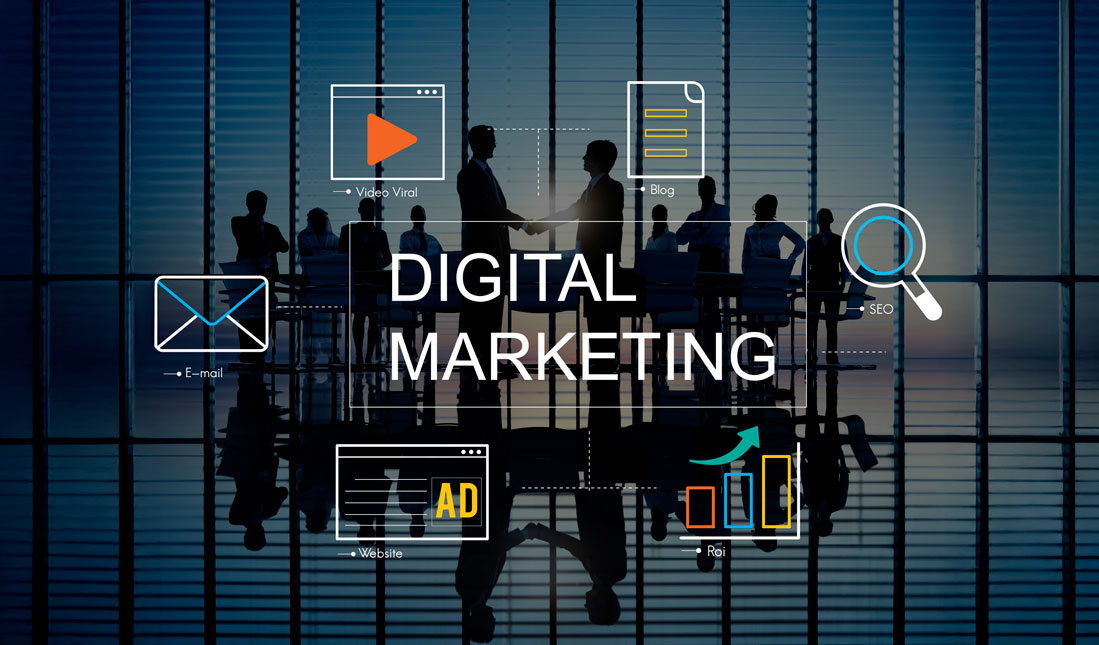
Top Advantages and Disadvantages of Digital Marketing for Businesses
In today’s digital era, businesses heavily rely on online platforms for growth. Digital marketing offers numerous opportunities for reaching wider audiences, but it also comes with challenges. Understanding the advantages and disadvantages of digital marketing is essential for maximizing its potential. This comprehensive guide will explore the advantages and disadvantages of digital marketing and pros & cons to help businesses make smarter decisions. Whether you are a startup or a well-established company, knowing what to expect can enhance your marketing strategy.
Advantages of Digital Marketing
1. Cost-Effective Marketing Solution
Digital marketing provides an affordable alternative to traditional methods. Moreover, unlike TV or print ads, businesses can promote their services at a lower cost. Consequently, small companies often benefit the most from this affordability.
Additionally, platforms like Google Ads offer flexible budget options. Furthermore, businesses only pay when users interact with their ads, making it a budget-friendly solution. Therefore, companies can maximize their marketing reach while keeping expenses under control.
2. Wider Audience Reach
Reaching a global audience is now easier with digital marketing. Moreover, companies can target specific regions and demographics using tools like Meta Ads. Consequently, even small local businesses can expand their reach significantly.
Furthermore, multilingual ads allow businesses to connect with diverse customer bases. Additionally, this enhanced visibility ensures consistent brand growth on a broader scale. Therefore, companies can maximize their impact by tailoring campaigns to different cultural and linguistic preferences.
3. Real-Time Analytics and Insights
Tracking performance in real-time is a significant advantage of digital marketing. Furthermore, tools like Google Analytics provide detailed insights into customer behavior. Additionally, businesses can monitor metrics like click-through rates, conversions, and user engagement.
With such valuable data, companies can quickly adjust their marketing strategies for better results. Moreover, data-driven decision-making often leads to improved ROI. Consequently, businesses gain a competitive edge by making informed, timely adjustments to their campaigns, understanding both the advantages and disadvantages of digital marketing and its pros & cons.
4. Enhanced Customer Engagement
Digital platforms encourage direct interaction between businesses and customers. Additionally, through social media, brands engage with their audience using comments, reviews, and polls. Consequently, this builds stronger customer relationships.
Moreover, according to HubSpot, brands that actively engage on social media experience higher loyalty and customer retention. Furthermore, personalizing responses significantly enhances the overall brand image, leading to increased trust and long-term customer satisfaction.
5. Higher Conversion Rates
With strategic planning, digital marketing can significantly boost conversion rates. Additionally, effective use of SEO, email marketing, and remarketing campaigns increases the chances of turning leads into customers.
Moreover, platforms like Mailchimp provide automation tools that simplify the customer journey. Furthermore, personalization in emails enhances customer satisfaction. Consequently, increased customer engagement often leads to higher sales and long-term brand loyalty.

Navigating the Downsides of Online Marketing
1. High Competition
The online marketplace is highly competitive. Consequently, businesses struggle to stand out due to the saturation of digital content. Even with great strategies, gaining visibility requires consistent effort and investment.
To combat this, companies must focus on strong SEO practices and innovative campaigns. Additionally, partnering with agencies like American Webtech can provide expert support. Therefore, businesses can enhance their digital presence more effectively.
2. Data Privacy and Security Concerns
Handling sensitive customer data comes with significant security responsibilities. Moreover, with rising cyber threats, businesses must strictly comply with data protection laws like GDPR.
Additionally, a security breach can severely damage a brand’s reputation. Therefore, companies must proactively invest in robust cybersecurity measures. Furthermore, ensuring transparent data handling is crucial for maintaining customer trust and legal compliance.
3. Rapid Technological Changes
Digital marketing trends evolve quickly, making it increasingly challenging for businesses to keep up. Moreover, algorithms, platforms and user preferences change frequently. Without staying updated, companies risk significantly falling behind their competitors.
Therefore, continuous learning and adaptation are essential. Additionally, subscribing to resources like Neil Patel’s Blog can provide valuable insights. Furthermore, businesses can gain a competitive edge by staying informed about the latest industry trends.
4. Risk of Negative Feedback
Negative reviews and comments can spread rapidly online. Moreover, mismanaged customer complaints or controversial marketing campaigns can severely harm a brand’s reputation.
Therefore, businesses need an active reputation management strategy. Additionally, promptly addressing customer concerns demonstrates responsibility. Furthermore, it helps maintain brand credibility and fosters customer trust.
5. Over-Reliance on Technology
While technology simplifies marketing, over-dependence can be risky. Furthermore, technical failures like website downtime or ad platform issues can significantly hinder campaigns. Therefore, businesses should always have backup strategies to mitigate such risks.
Additionally, using reliable hosting services and maintaining regular backups is crucial. Moreover, platforms like Bluehost offer dependable hosting solutions, ensuring minimal disruptions.
Conclusion
Understanding the marketing empowers businesses to create successful strategies. Moreover, while the benefits include cost savings, wider reach and customer engagement, challenges like competition and security threats remain.
Therefore, to navigate these challenges effectively, businesses can confidently collaborate with industry experts like American Webtech. Furthermore, with the right approach, digital marketing can drive growth, build brand awareness and significantly increase revenue.
Also Read This:



